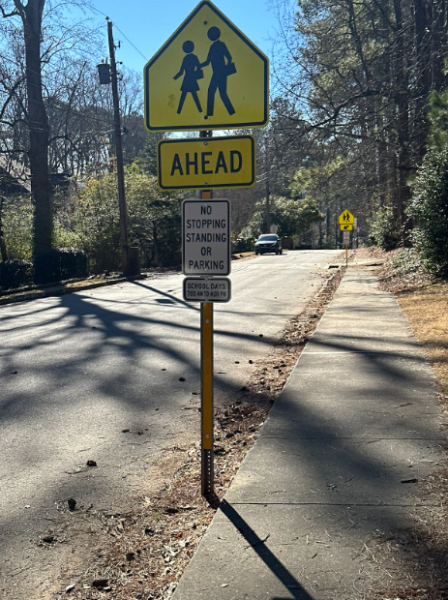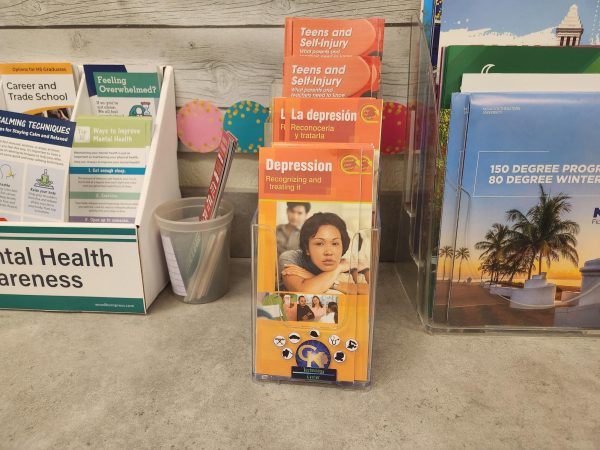Standardizing the Test: Chamblee’s Opinion on Upcoming SAT changes
“I still plan on taking the SAT, but these changes actually don’t make me dread the test as much as I used to,” said Daniel Mata (’23).
This came after the College Board announced that after June 2021, they would no longer be offering the optional subject tests or essay with the SAT. While not required, the subject tests—offered in math, science, English, history, and nine different languages–could serve as additional points to submit to colleges for consideration. Similarly, the essay would give colleges one more point to look at, beyond test scores.
And while these changes were instituted as a means to simplify college applications in the midst of a pandemic, they have further-reaching implications for Chamblee students.
Senior Claire Turney (’21), who is in the midst of the college application process, shared her thoughts on the removal of the subject tests. While these upcoming changes won’t personally affect her, she sees this change as a positive.
“It costs extra to take those subject tests, so I understand that by taking away the subject tests and the SAT, it’s more of an economic equalizer and it’s not just like buying your way into college,” she said. “I also saw the subject tests as a hassle because some schools required them, like [Ivy League Schools], and some schools don’t. I think the subject tests are a way for really excellent students to go the extra mile, but like I said, if you can’t afford to take the subject tests, you’re kind of out of luck in that sense, especially when applying to top schools. So hopefully taking away this option somewhat levels the playing field.”
James Demer, an AP Lang and American lit teacher at Chamblee, also hopes the change will help combat the larger issue of economic bias in college applications.
“College admissions have become so ridiculously competitive since I was in high school,” said Demer. “[…] and in general, children of wealthier parents have more opportunities to take SAT prep classes, and things like that.”
In contrast with the subject tests, the SAT essay removal was more debatable than other changes. For Turney, the essay was an outlet for her to express her writing skills, which would enhance her college applications.
“So for me, I really like writing and the essay was one of my strongest points. It was a great supplemental that I could send to colleges, so I’m kinda bummed they’re taking it out, especially because it was optional,” said Turney. “In my opinion, they definitely should’ve left the essay, but I can only really say that because it benefitted me.”
Junior Matthew Tubbs also disagreed with the essay removal, on the basis that it gives students who may not have testing as a strong suit a chance to redeem themselves with their writing.
“I think the essay option is a great way for smart people who just can’t test well to show colleges their intelligence,” said Tubbs.
On the other hand, the essay removal could potentially help many students, by making the test itself easier and less stressful overall.
“I think the changes will make the test easier overall and I do think it will help students,” said Mata.
In general, Chamblee students and teachers see the changes as a start. But there are still more changes they would like to see.
Namely, students want to see changes around the time frame of college applications.
“I think one thing that colleges could change would be [to] make the application, your transcript, resume, and main essay due at one date and then supplemental essays should be due a few weeks later,” said Turney. “This is because when they look at your application, they initially screen you for your grades and records, and then they read your essay and supplementals, which is a whole different level of analysis. So I feel like they could take some stress off the students by extending the deadlines for some things.”
Tubbs wants to see the College Board become more flexible with their test dates.
“I do think other issues should have been changed,” said Tubbs. “For instance, it would be very helpful [if College Board were] to offer the SAT monthly, especially now that COVID is a factor.”
Demer, a teacher who often spends class time to help prepare his students for college applications, wants more transparency in the application process.
“I think the most stressful thing for most of you ambitious students is that the process of getting into college is an opaque process. Like you are trying to do many, many things to make yourselves attractive to colleges, but you don’t really know which one is the thing that’s going to get you in or not,” said Demer. “We exist in the world’s stupidest education system. In other countries, I don’t think students are as stressed out about getting into this or that university.”
And while the SAT revision might not be indicative of these larger changes, it’s a start.
Your donation will support the student journalists of Chamblee High School Blue & Gold. Your contribution will allow us to print editions of our work and cover our annual website hosting costs. Currently, we are working to fund a Halloween satire edition.

Allison Lvovich is a senior, and this is her second year in journalism. In her spare time, she plays/teaches tennis and plays chess. In 5 years time, she sees herself doing something related to statistics. One movie that encapsulates her Chamblee experience is "Legally Blonde."

Adam Pohl is a senior and this is his second year on the staff. One movie that describes his life is "I Am Legend." In five years, he sees himself graduating college and entering the workforce as one insignificant cog in the unrelenting machine of capitalism.









